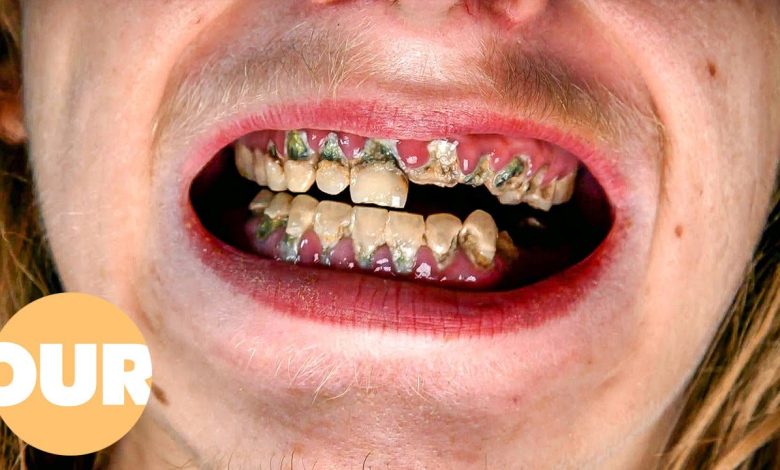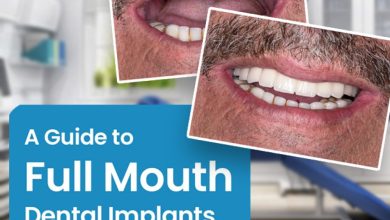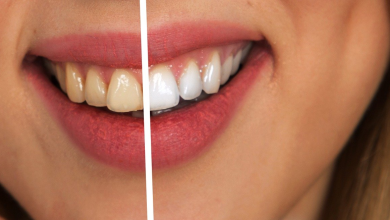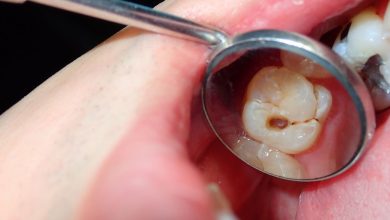What to Do When a Rotten Tooth Falls Out?

When a rotten tooth falls out, it is important to seek immediate dental assistance for proper treatment and prevention of further complications. Losing a tooth can be distressing, but taking prompt action ensures the best chance for a favorable outcome and restoration of your dental health.
By addressing the issue without delay, you can mitigate pain, infection, and potential oral health risks. Additionally, professional dental care can provide options for replacing the missing tooth and restoring your smile. Remember, seeking help from a qualified dentist is crucial in managing a rotten tooth that has fallen out.
Importance Of Addressing A Rotten Tooth
Addressing a rotten tooth is crucial for maintaining overall oral health. When a rotten tooth falls out, it can have a significant impact on the surrounding teeth and gums. The bacteria that caused the tooth decay can spread to other areas of the mouth, leading to further dental issues. Moreover, the gap left by a missing tooth can cause neighboring teeth to shift, resulting in misalignment and bite problems. To prevent these complications, it is important to seek immediate dental care when a rotten tooth falls out.
Your dentist may recommend various treatments to address the issue, such as dental implants, dentures, or dental bridges to replace the missing tooth. These options not only restore the aesthetics of your smile but also help maintain proper oral function. Additionally, practicing good oral hygiene habits, such as regular brushing and flossing and routine dental check-ups, can help prevent future tooth decay and maintain overall oral health.
Ignoring a rotten tooth and failing to seek appropriate dental treatment can lead to further dental complications and potentially impact your overall well-being. Prioritizing the prompt addressing of a rotten tooth is essential for a healthy and confident smile.
Common Causes Of A Rotten Tooth Falling Out
When a rotten tooth falls out, it can be a cause for concern and require immediate attention. Poor oral hygiene is one of the common causes of a rotten tooth falling out. Neglecting regular brushing and flossing allows bacteria to accumulate, leading to tooth decay and cavities. This can weaken the tooth structure and cause it to eventually fall out. Another cause is gum disease, which occurs when the gums become infected and start to recede. As a result, the supporting bone and tissues that hold the teeth in place become damaged, leading to tooth loss. It is important to practice good oral hygiene, including daily brushing and flossing, as well as regular dental check-ups, to prevent and address these issues. If a rotten tooth falls out, it is advisable to see a dentist immediately to determine the underlying cause and receive appropriate treatment.
Gathering The Fallen Tooth
When a rotten tooth falls out, it is important to handle it with care in order to increase the chances of successful reattachment. The first step is to retrieve the tooth intact. Avoid touching the root of the tooth and instead hold it by the crown, which is the visible part of the tooth. Rinse the tooth gently with milk or saline solution to remove any debris, but avoid using water or scrubbing the tooth. If possible, try to place the tooth back into its socket immediately. If the tooth cannot be reattached, the next best option is to store it properly to maintain its viability. The tooth should be kept moist by placing it in milk or saliva, or wrapped in a clean cloth soaked in milk. It is crucial to seek dental care as soon as possible to increase the chances of saving the tooth.
Cleaning The Affected Area
Rinsing the mouth with warm saltwater is a simple yet effective way to clean the area where a rotten tooth has fallen out. Saltwater helps to
reduce inflammation and kill bacteria, promoting healing. Mix half a teaspoon of salt in a glass of warm water and swish it
around in your mouth for about 30 seconds. Spit it out and repeat a few times a day until the area improves.
Using a gentle antiseptic mouthwash can also aid in cleaning and reducing the risk of infection in the area. Look for a mouthwash that contains
antibacterial ingredients like chlorhexidine or hydrogen peroxide. Dilute it with water as instructed and swish it around your mouth for about half a minute.
Spit it out and avoid eating or drinking for at least 30 minutes after using the mouthwash for maximum effectiveness.
Managing Pain And Discomfort
When a rotten tooth falls out, it can be painful and uncomfortable. To manage the pain and discomfort, there are a few things you can do. Applying a cold compress to the affected area can help reduce swelling and numb the area, providing relief. Taking over-the-counter pain relievers like ibuprofen can also help alleviate the pain. It is important to follow the recommended dosage and consult a dentist if the pain persists or worsens. Additionally, maintaining good oral hygiene by brushing twice a day, flossing daily, and rinsing with saltwater can promote healing and prevent further infection. Seeking prompt dental care is crucial to address the underlying cause of the rotten tooth and prevent any complications. Remember to consult a qualified professional for personalized advice and treatment.
Seeking Immediate Dental Care
When a rotten tooth falls out, it is important to seek immediate dental care to avoid further complications. Contacting emergency dental services should be your first step. They are equipped to handle urgent dental situations and can provide guidance on the next steps to take.
Discussing the situation with a dentist is crucial in determining the underlying cause of the rotten tooth. They can help assess the condition of your other teeth and recommend appropriate treatment options. Timely intervention is essential to prevent infection and preserve your oral health.
Remember, a rotten tooth falling out indicates a serious dental issue that requires professional attention. Ignoring it can lead to further damage and potential complications. Take action promptly and consult a dentist to ensure your oral well-being.
Dental Implants
Dental implants:
Having a rotten tooth fall out can be a concerning issue. One option to consider is dental implants. The process involves surgically placing a metal post into the jawbone, which acts as an anchor for the replacement tooth. This provides stability and functionality just like a natural tooth. In addition to its aesthetic benefits, dental implants offer several advantages. They provide improved chewing ability, support facial structure, and enhance speech. Moreover, they are a long-term solution that can last a lifetime with proper care. When considering dental implants, it is important to take into account a few considerations such as eligibility, healing time, and costs. Factors like the number of implants needed and any additional procedures required can affect the overall cost. Consulting with a dentist will provide a clearer understanding of the expenses involved.
| Process and benefits | Considerations and costs |
Dentures Or Bridges
Dentures and bridges are two common options for replacing a rotten tooth that has fallen out. Dentures are removable artificial teeth that can be full or partial, while bridges are fixed prosthetic devices that anchor onto adjacent healthy teeth. There are different types of dentures available, including conventional, immediate, and implant-supported dentures. Conventional dentures are made after the teeth have been extracted and the gum tissue has healed. Immediate dentures are made in advance and can be placed immediately after the tooth extraction, allowing the wearer to have teeth during the healing period. Implant-supported dentures, as the name suggests, are secured by dental implants and offer enhanced stability. On the other hand, bridges come in different materials such as porcelain, gold, and alloy. They are attached to healthy teeth on either side of the gap, serving as a bridge to fill the missing tooth space. Bridges can restore the appearance and function of the teeth. Pros: – Dentures provide a cost-effective option for replacing a rotten tooth. – Bridges are a more permanent solution and offer better stability and comfort. Cons: – Dentures may require periodic adjustments and may not feel as natural as natural teeth. – Bridges require healthy adjacent teeth for support and may require more invasive procedures. It is important to consult with a dental professional to determine the best solution for your specific dental needs and preferences.
Maintaining Good Oral Health To Prevent Further Tooth Loss
Maintaining good oral health is crucial to prevent further tooth loss. A proper dental care routine is essential in ensuring the health of your teeth and gums. Brushing your teeth twice a day using a fluoride toothpaste and a soft-bristled toothbrush helps to remove plaque and bacteria. It is important to floss daily to clean the spaces between your teeth and along the gum line. Using mouthwash can further reduce plaque and help fight gum disease. In addition to a good oral hygiene routine, regular dental check-ups are vital. Visiting your dentist every six months allows for early detection of any dental issues and helps to prevent tooth loss. Your dentist can conduct thorough cleanings and provide professional advice on maintaining optimal oral health. By following these practices, you can promote good oral hygiene and reduce the likelihood of a rotten tooth falling out. Remember, prevention is always better than cure when it comes to your dental health.
Credit: www.shutterstock.com
Frequently Asked Questions For What To Do When A Rotten Tooth Falls Out?
What If My Rotten Tooth Falls Out?
If your rotten tooth falls out, it’s important to see a dentist for evaluation and treatment. Ignoring the situation can lead to further dental issues.
Is It Ok To Pull Out A Rotten Tooth?
It is not recommended to pull out a rotten tooth by yourself. It can lead to infection or injury. Visit a dentist for appropriate treatment and professional tooth extraction.
Can A Dead Tooth Fall Out On Its Own?
A dead tooth cannot fall out on its own. It requires dental intervention to remove or treat the dead tooth.
What Happens If You Leave A Rotten Tooth Too Long?
Leaving a rotten tooth untreated for a long time can lead to further decay, severe toothache, infection, and even tooth loss. It’s important to seek dental care to prevent complications and maintain oral health.
Conclusion
When a rotten tooth falls out, it is important to take immediate action to prevent further complications. By following these steps, such as rinsing the area with warm saltwater, applying a cold compress, and seeking professional dental care, you can effectively manage the situation.
Proper oral hygiene and regular dental check-ups are essential for maintaining a healthy smile. Remember, taking care of your teeth is crucial for overall oral health.




